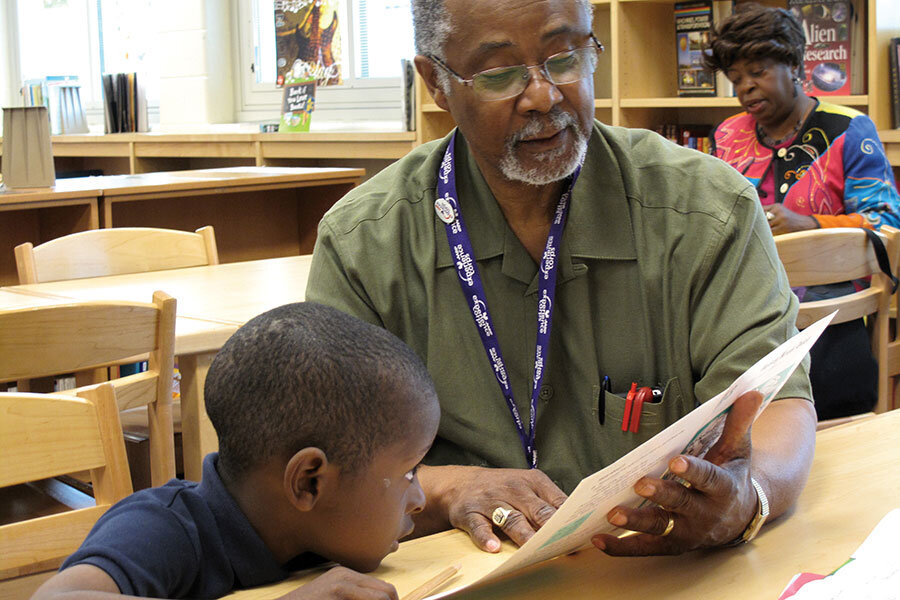A critic of schools gets a new view as a tutor in Cleveland
Loading...
This essay is part of an occasional series provided by our partner organization Encore.org, which is building a movement to tap the skills and experience of those in midlife and beyond to improve communities and the world. Read more stories and share yours at Encore.org/story.
I am an Experience Corps-stipended tutor in the Cleveland public schools.
I had retired from my job as a senior letter carrier in Cleveland and had told my wife I was going to take a year off and not do anything. At the end of that year, she said, “Your year’s up. What are you gonna do?” The truth is I didn’t have any idea.
I happened to attend a community event and saw a table set up by Greater Cleveland Volunteers. They asked me, “Are you interested in tutoring children in public schools?”
I thought: I’ve always been the one talking about what the teachers aren’t doing and what the schools aren’t doing, and what they need to do, so this was my chance to actually do something.
It had never occurred to me that I would like doing something like this. But I went in for an interview, had a background check since I’d be working with kids, and the rest is history. This is my sixth year working three days a week, five hours a day.
We help the children learn to read, so by the time they get to fourth grade, they have skills to succeed. Their teacher gives us an evaluation of where their weaknesses are, and we work on those areas. With the kindergartners, it’s mostly ABCs. They can sing the ABC song but can’t recognize the letters. So we work on letter recognition, upper- and lowercase.
At the school I’m tutoring in now, the average class size is 40-plus kids. The ones who are lagging in those areas of literacy kind of get lost. Teachers don’t have time to work with the individual students and get them up to the level with the rest of the kids. So we are a big help to them.
I get real joy in seeing the effect of our work. The kids I started out with are now in the fifth grade. I still see them, and they recognize me and they tell me they are doing OK – maybe not where they should be, but without the help of the tutoring, they would be unable to keep up with the rest of the kids in class. Seeing the improvement in the kids makes you feel good.
One young boy sticks out in my memory. It was my second year, and he came from a household with drug addiction issues. He had started to catch on during the school year, but I worried that during the summer break he would lose ground. We worked with his foster mother over the summer, giving him material to study. When he came back the next year, you wouldn’t have known it was the same boy. He had made so much progress.
What I have learned is that the attention of an adult is very important. I tell my friends: If they are retired, don’t have anything to do, and like kids, and if education is important to them, they should do this.
I was a complainer about poor schools, but I found out they are doing the best they can with the resources that they have. And I get enjoyment from giving back and helping those who need help.
• Learn more about AARP’s Experience Corps program at aarp.org/experience-corps.







